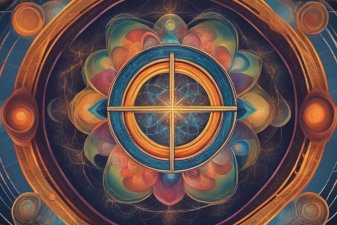When it is exclaimed that contradictions may very well be true, numerous analytic philosophers will screw up their face into an appearance of discomfort, and say ‘But I just don’t see what it could be for a contradiction to be true’. They could mean numerous things by this. ‘See’ might just mean ‘understand’, by which case they might be complaining that traditional two-valued semantics leaves no room, as it were,...
In physics, we speak of energy and its various manifestations, such as electricity, light, heat, etc. The situation in psychology is precisely the same. Here, too, we are dealing primarily with energy . . . with measures of intensity, with greater or lesser quantities. It can appear in various guises. . . . As I worked with my fantasies, I became aware that the unconscious undergoes or produces change. Only...
Hypnosis, suggestions can drastically alter the way individuals perceive and think about their world. There has always been tension between the rulers and the ruled, the masters and the masses. It is the centrifugal pull of self-desire against the welfare of the larger society, the tether that holds human history together. For much of that history society at large was the concern of a governing class: kings or priests, who often viewed the masses, scrabbling for survival, with disdain. As […]...
The anima as a friend or soror mystica (mystical sister) has always played a great role in history. In the “cours d’amour” (courts of love) of René d’Anjou she even takes precedence over the wife. The term maîtresse actually means mistress or master. In the Middle Ages, for example, the worship of the anima led to courtly love, in which the knight was committed to his lady and was at...
The Intersection of Physics and Psychology: Unraveling the Mysteries of Matter, Energy, and the Mind
In Arthur I. Miller’s Deciphering the Cosmic Number: The Strange Friendship of Wolfgang Pauli and Carl Jung, we are introduced to a profound and intellectually stimulating discourse that explores the intersection of quantum physics and psychology. Through the lens of Wolfgang Pauli, a pioneering physicist, and Carl Jung, the father of analytical psychology, Miller delves into the complex relationship between matter, energy, and the psyche. The exploration of these concepts,...
Carl Jung, in his chapter “The Soul and Death” from Psychology and the Occult, offers a deeply contemplative examination of the inevitable intersection between life and death, urging us to reconcile these forces as part of a continuous psychological process. Unlike the typical view that death marks a strict endpoint, Jung expands on the notion that death serves a psychological and even transformative role for the human soul, urging us to prepare not only for life but for its cessation […]...







